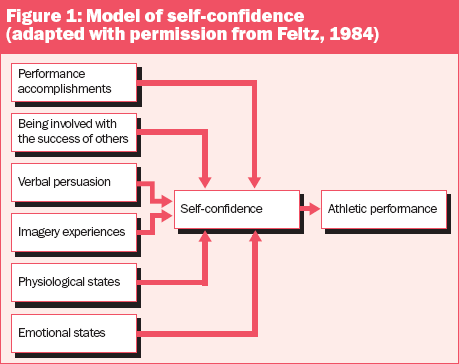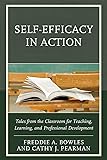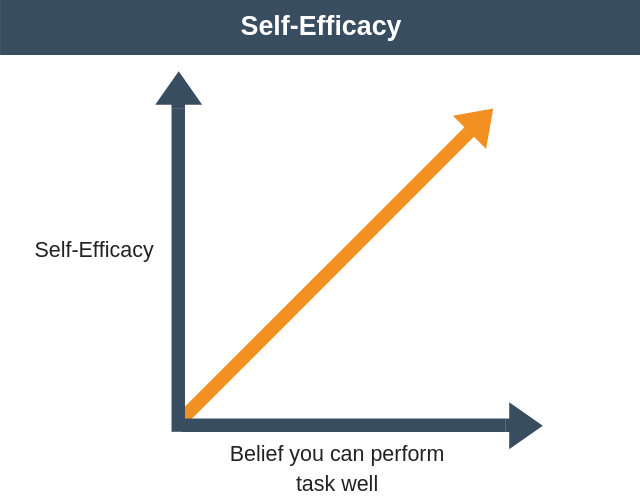Self efficacy the exercise of control bandura pdf
Albert Bandura is best known for his theory of self-efficacy and his work in social learning, including the famous “Bobo doll” experiment. In addition, Bandura served as President of the American Psychological Association in 1974 and continues to research and teach at Stanford University.
In this instance self-efficacy can be a tool to make better decisions in life to take control of one’s health where possible—examples of these preventative self-efficacy methods include being “physically active, reduc[ing] dietary fat, refrain[ing] from smoking, keep[ing] blood pressure down, and develop[ing] effective ways of managing stressors” (Bandura, 2008).
“Self Efficacy” is the result of over 20 yrs of research by the psychologist, Albert Bandura, and the ever-widening circle of related research that has emerged from Bandura’s original work.
Read “Social cognitive theory of posttraumatic recovery: the role of perceived self-efficacy, Behaviour Research and Therapy” on DeepDyve, the largest online rental service for scholarly research with thousands of academic publications available at your fingertips.
Bandura showed that difference in self-efficacy correlates to fundamentally different world views. People with high self-efficacy generally believe that they are in control of their own lives, that their own actions and decisions shape their lives, while people with low self-efficacy may see their lives as outside their control.
Self-Efficacy Albert Bandura Stanford University Bandura, A. (1994). Self-efficacy. In V. S. Ramachaudran They approach threatening situations with assurance that they can exercise control over them. Such an efficacious outlook produces personal accomplishments, reduces stress and lowers vulnerability to depression. In contrast, people who doubt their capabilities shy away from difficult
Self-Efficacy for Exercise (SEE) Scale About: This scale is a self-report of exercise self-efficacy. Items: 9 Reliability: Internal consistency = 0.92. Validity: Mental and physical health scores on the SF-12 predicted efficacy expectations as measured by the SEE Scale. Furthermore, SEE efficacy expectations predicted exercise. Scoring: Total score is calculated by summing the responses to
Albert Bandura was born on December 4, 1925, in Mundare, Alberta, Canada. He attended school at an elementary and high school in one and received his bachelor’s from …
perceived self-efficacy in the exercise of control over aids infection albert bandura skills and a sense of personal power to exercise control How To Stick With Exercise – Ron Jones
Albert Bandura’s highly anticipated examination of his vastly influential work on self-efficacy is now available. The result of over 20 years of research by this renowned psychologist, the book articulates comprehensively Bandura’s theory that believing one can achieve what one sets out to do results in a healthier, more effective, and generally more successful life.
Bandura Self Efficacy The Exercise Of Control Ebook goal is to free all of the trapped Snoods by launching other Snoods at them. AtomBall – Free download and software reviews – 2mUy53rIa Explore an abundance of puzzling fun in this exotic matching challenge. You can customize the size of the parts in bytes, kilobytes, megabytes, or gigabytes or use one of many preset options, including
Self Efficacy The Exercise Of Control Albert Bandura

Motivation and emotion/Book/2011/Self-efficacy Wikiversity
Albert Bandura, one of the proponents of the social cognitive approach to personality, particularly highlights the role played by self-efficacy on the behaviour of an individual. Self-efficacy expectancy or perceived self-efficacy, has to do with a person’s belief in his capacity to exercise control over his own behavior and over events in order to generate a desired outcome.
In his book, Self-Efficacy: The Exercise of Control, Bandura (1997) reviewed nearly two thousand published studies examining the role of self-efficacy perceptions in an array of performance domains.
Self-efficacy the Exercise of Control – Free download as PDF File (.pdf), Text File (.txt) or read online for free. Scribd is the world’s largest social reading and publishing site. Search Search
Download Self-Efficacy: The Exercise of Control by Albert Bandura 1997 Pdf Book ePub. Albert Bandura’s highly anticipated examination of his vastly influential work on self-ef Albert Bandura’s highly anticipated examination of his vastly influential work on self-ef
Self-efficacy ( judgment of capability) is distinct from self-esteem ( judgment of self-worth), locus of control (belief in how outcomes are determined), and outcome expectancies (judgment of likely outcomes from performance) (Bandura, 2006).
self-e%cacy is related to how much like yourself you think the model is (Bandura, 1994). !e more one associates with the person being watched, the greater the in*u- ence on the belief that one’s self can also accomplish the behavior being observed.

Your Bibliography: Bandura, A. (1982). The assessment and predictive generality of self-percepts of efficacy. The assessment and predictive generality of self-percepts of efficacy. Journal of Behavior Therapy and Experimental Psychiatry , 13(3), pp.195-199.
to disseminate and implement the theory of self-efficacy to develop and improve the adaptational capabilities of youth. It only remains for me to thank Albert Bandura, the main organizer of
Bandura’s exercise self-efficacy scale (Bandura, 2006) has been validated in a Korean sample with chronic disease, with a single factor found to explain 77.5% of the variance (Shin et al., 2001).
In social cognitive theory, perceived self-efficacy to exercise control over potential threats plays a central role in anxiety arousal. Threat is a relational property reflecting the match between perceived coping capabilities and potentially hurtful aspects of the environment.

Exercise Self Efficacy About: This scale, created by Neupert, Lachman, & Whitbourne is a modified version of Bandura’s Exercise Self-Efficacy Scale
Self-efficacy derives from the theory of human agency (Bandura, 1989, 2011). Self-efficacy beliefs are seen to be an attempt by an individual to control ones circumstances (Bandura, 1997).
exercise self-efficacy can be defined as “the belief in one’s capability to successfully perform incremental bouts of physical activity” (Sidman, D’Abundo, & Hritz, 2009, p. 163). Similarly, weight control self-efficacy can be defined as the belief in one’s capability to successfully manage one’s weight incrementally. Weight control self-efficacy has been found to play an important
Free Book PDF Self Efficacy The Exercise Of Control at Complete PDF Library. This Book have some digital formats such us : paperbook, ebook, kindle, epub, and another formats. Here is The Complete PDF Book Library. It’s free to register here to get Book file PDF Self Efficacy The Exercise Of Control. Amazon com Self Efficacy The Exercise of Control December 1st, 2018 – This bar code number
Albert Bandura explores the self-system throughout lifespan. Self-regulation and perceived self-efficacy help people to adjust to realities of each life’s stage, from early childhood till …
Self-efficacy is hypothesized to influence choice of activities, effort expended, and persistence (Bandura, 1986). Students who hold low self-efficacy for learning may avoid tasks; those who judge themselves efficacious are
212 SELF-EFFICACY expressions of affect (e.g., facial expressions, eye con- tact, touch, and paralanguage), but also through be- haviors from which inferences about the discloser may
Bandura’s conceptualization – his take or spin on – psychological phenomena is (in my opinion) the most agent-friendly and self-empowering. It’s been over a decade since Albert Bandura’s book “Self-Efficacy: The Exercise of Control” (hereafter SE) has been published.
Self-Efficacy for Exercise (SEE) Scale AbilityLab
Self-Efficacy: From Theory to Instruction 5 efficacy information because they provide the most direct, authentic evidence that an individual can gather the personal resources necessary to succeed (Bandura…
EFFICACY AND EXERCISE MAINTENANCE P219 nated, self-efficacy again became the most potent predictor of exercise behavior at 4-month follow-up (McAuley, Self-Efficacy and Locus of Control: Definition and Meaning
Self-Efficacy: The Exercise of Control is a book on scientific psychology written by Albert Bandura. The book was originally published in the United States in 1997. Translations have been published in Chinese, French, Italian, and Korean.
DOWNLOAD SELF EFFICACY THE EXERCISE OF CONTROL ALBERT BANDURA self efficacy the exercise pdf Self-efficacy is an individual’s belief in his or her innate ability to achieve goals.Albert Bandura defines it as a – unity 5 x shaders and effects cookbook pdf
Self-Efficacy in Changing Societies ResearchGate
Quotes From Albert Bandura on His Theories Verywell Mind

Social cognitive theory of posttraumatic DeepDyve
Self Efficacy The Exercise of Control Albert Bandura

Self-efficacy the exercise of control (Book – WorldCat
Extending Self-Efficacy Theory to Leadership A Review and

Self-Efficacy The Exercise of Control book by Albert Bandura
effect of malaria on pregnant women pdf –


Self-Efficacy in Changing Societies ResearchGate
Weight Loss Self-Efficacy and Modelled Behaviour Gaining
Self-efficacy the Exercise of Control – Free download as PDF File (.pdf), Text File (.txt) or read online for free. Scribd is the world’s largest social reading and publishing site. Search Search
In this instance self-efficacy can be a tool to make better decisions in life to take control of one’s health where possible—examples of these preventative self-efficacy methods include being “physically active, reduc[ing] dietary fat, refrain[ing] from smoking, keep[ing] blood pressure down, and develop[ing] effective ways of managing stressors” (Bandura, 2008).
Self-efficacy derives from the theory of human agency (Bandura, 1989, 2011). Self-efficacy beliefs are seen to be an attempt by an individual to control ones circumstances (Bandura, 1997).
Albert Bandura was born on December 4, 1925, in Mundare, Alberta, Canada. He attended school at an elementary and high school in one and received his bachelor’s from …
In his book, Self-Efficacy: The Exercise of Control, Bandura (1997) reviewed nearly two thousand published studies examining the role of self-efficacy perceptions in an array of performance domains.
Albert Bandura’s highly anticipated examination of his vastly influential work on self-efficacy is now available. The result of over 20 years of research by this renowned psychologist, the book articulates comprehensively Bandura’s theory that believing one can achieve what one sets out to do results in a healthier, more effective, and generally more successful life.
Exercise Self Efficacy Brandeis University
exercise self-efficacy can be defined as “the belief in one’s capability to successfully perform incremental bouts of physical activity” (Sidman, D’Abundo, & Hritz, 2009, p. 163). Similarly, weight control self-efficacy can be defined as the belief in one’s capability to successfully manage one’s weight incrementally. Weight control self-efficacy has been found to play an important
Perceived Self-Efficacy Self-Regulation and Behaviour
Weight Loss Self-Efficacy and Modelled Behaviour Gaining
NEW Self-Efficacy The Exercise of Control by Albert Bandura
Bandura showed that difference in self-efficacy correlates to fundamentally different world views. People with high self-efficacy generally believe that they are in control of their own lives, that their own actions and decisions shape their lives, while people with low self-efficacy may see their lives as outside their control.
Bandura Self Efficacy The Exercise Of Control Ebook
Extending Self-Efficacy Theory to Leadership A Review and
Bandura’s exercise self-efficacy scale (Bandura, 2006) has been validated in a Korean sample with chronic disease, with a single factor found to explain 77.5% of the variance (Shin et al., 2001).
Social cognitive theory of posttraumatic DeepDyve
Self-efficacy the exercise of control (Book – WorldCat